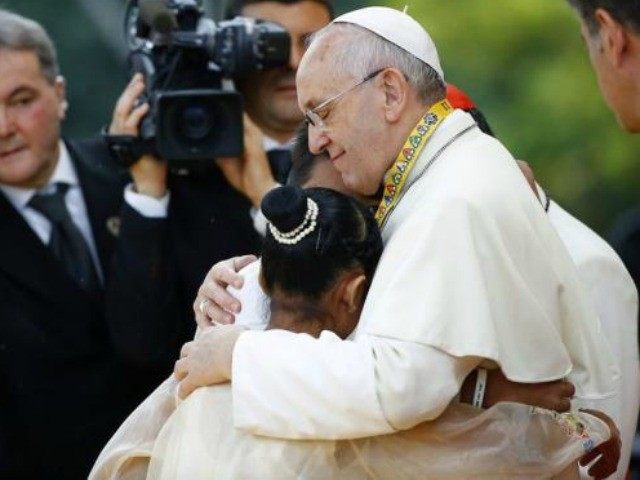On Wednesday, Pope Francis continued his reflections on the family, addressing the delicate question of divorce and separation, as well as its effects on family members. He invited his hearers to think more about the effects that adults’ actions have on the most vulnerable, especially little ones.
Francis acknowledged that pain is part and parcel of family life, and “in any family history there are moments in which the intimacy of loved ones is damaged by the behavior of its members.”
“Words and actions (and omissions!), instead of expressing love, sometimes drain it or, worse still, stifle it,” he said, adding:
When these wounds—which are still curable—are neglected, they fester: they turn into arrogance, hostility and contempt. And then they can become deep lacerations, dividing husbands and wives, leading them to look elsewhere for understanding, support and consolation.
This “support” often “does not consider the good of the family,” he said.
But worst of all, Francis said, is the toll this takes on children, who bear the brunt of family problems. “The emptying of marital love spreads resentment,” he stated, “and often the break-up ‘dumps’ on children.”
The Pope invited his listeners to think deeply about the pain children endure because of the bad choices of adults. “Despite our apparently evolved sensitivity, and all our fine psychological analysis,” he said, “I wonder if we have not anesthetized ourselves against the wounds in children’s souls.”
Parents feel guilty and do their best to make up for the suffering, but it does not address the real problem, Francis said. “The more you try to compensate with presents and snacks, the more you lose your sense of the wounds of soul—the most painful and deep of all.”
“We talk a lot of behavioral problems, mental health, well-being of the child, anxiety of parents and children,” he said. “But do we know what a wound in the soul is? Do we feel the weight of the mountain that crushes the soul of a child, in families where members treat each other badly and hurt one another, up to the point of breaking the bond of marital fidelity?”
“When adults lose their heads, when everyone thinks only of himself, when Dad and Mom hurt each other, the souls of children suffer deeply, and they experience a feeling of despair. These wounds leave a scar for life,” he said.
When a man and a woman, who are committed to being “one flesh” and to forming a family, “think obsessively of their own needs for freedom and gratification, this disorder deeply affects the hearts and lives of children,” he said.
The Pope recognized that “there are cases in which separation is inevitable,” and underscored the responsibility of the Christian community to be there for them.
Sometimes, he said, it can even become morally necessary to separate “when it comes to rescuing the weaker spouse, or little children, from more serious injuries caused by arrogance and violence, scorn and exploitation, distance and indifference.”
Thanks be to God, he said, that “there are those who, sustained by faith and love for their children, bear witness to their loyalty to a relationship in which they believed, even though it appears impossible to revive it.”
“Not all separated people, however, feel this vocation. Not everyone recognizes, in a life of solitude, a call of the Lord addressed to them,” he said.
The Pope ended his address with a challenge for Christians to be a support for those who are living in so-called “irregular situations” (an expression, the Pope said, he does not like).
“How can we help? How can we stand by their sides? How can we accompany them so that the children do not become hostages of the father or the mother?” he asked.
Follow Thomas D. Williams on Twitter @tdwilliamsrome.

COMMENTS
Please let us know if you're having issues with commenting.